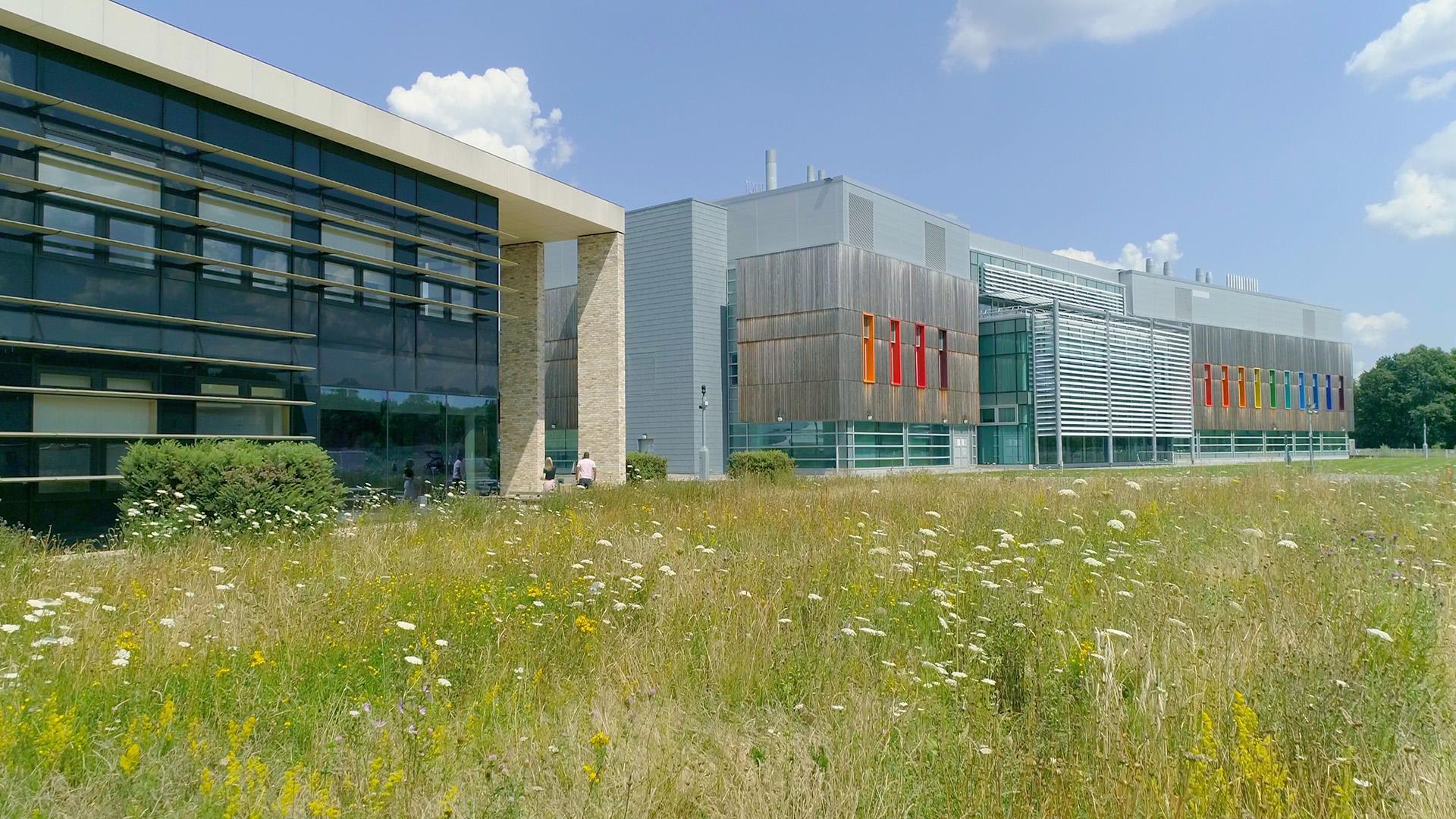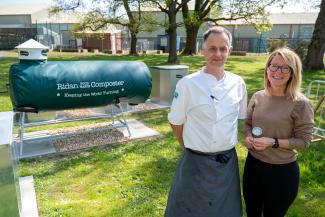The Pirbright Institute has signed the Concordat for the Environmental Sustainability of Research and Innovation Practice.
Produced in collaboration with representatives across research and innovation, the voluntary concordat encourages coordinated efforts across the sector to reduce environmental impacts of research and embed sustainability into research culture and practice.
The signing builds on The Pirbright Institute’s longstanding commitment to environmental sustainability, reflected in its operational plan and annual report. The Institute’s Energy and Environmental Team (EET) plays an active role in introducing new policies and procedures which reduce the environmental impact of Pirbright research.
EET co-chairs, Julie Maryan and David Gillies, said: “The Pirbright Institute is continually developing and evolving best practice around energy use and sustainability. Adopting the Concordat will underpin our joined up, collaborative approach to sustainability across site, allowing us to develop new projects aligned with its key priorities and benchmark our success against the work of other co-signatories.”
The Concordat supports organisations to work with funders, partners and peers to drive long-term, systemic change across six key areas: leadership and system change; sustainable infrastructure; sustainable procurement; emissions from business and academic travel; collaborations and partnerships, and environmental impact and reporting data.
The Institute has a range of environmental initiatives in place including energy use reduction across site, led by an Energy Manager. Pirbright turns food waste into compost, follows green travel policies, develops BREEAM-compliant buildings and supports a range of community projects. The Institute has also signed up to the UK’s Laboratory Efficiency Assessment Framework (LEAF) scheme and is working towards bronze accreditation.
Institute Director, Prof Bryan Charleston MRCVS FRS, said: “By signing this Concordat, we recognise the need to change how we conduct research and innovation, and how we promote environmental sustainability. We also agree to take shared action now and in future to reduce and, where practical, eliminate our own environmental impacts and emissions and to achieve the transition to sustainable practices.”

